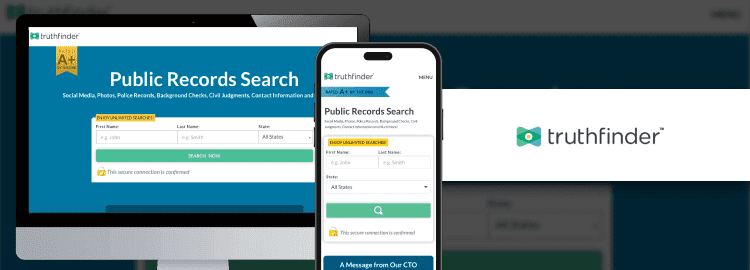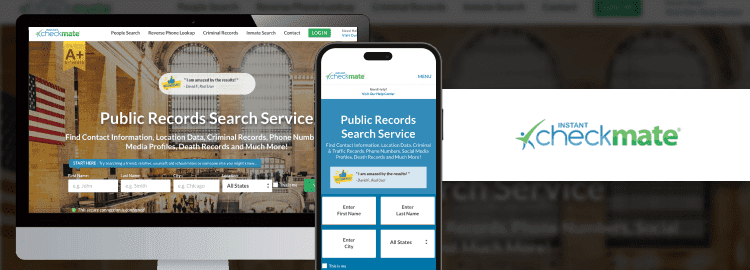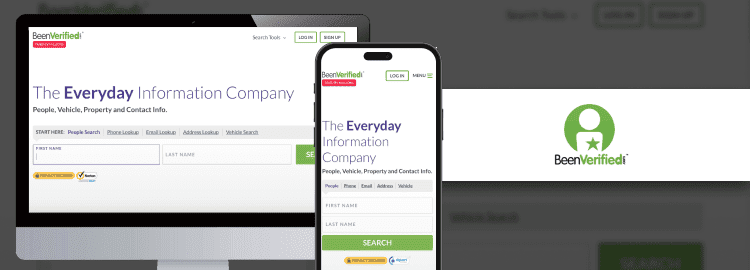Background Check in North Carolina: Laws & Screening Process

When you think about background checks, you’re probably considering a thorough investigation into someone’s history. In North Carolina, background checks are a standard tool for employers, landlords, and even individuals to ensure safety and trustworthiness. They help verify the credibility of potential employees, tenants, or other associates by providing detailed information about their past.
This article will walk you through what background checks are, how to get one, what typically shows up, the applicable federal laws that govern them, and where to find the best services available for pre-employment background checks and other purposes during the hiring process. This will also cover the role of state agencies and county resources to obtain these checks.
Need a Background Check?
Get StartedWhat Is a North Carolina Background Check?
A background check in North Carolina involves gathering information about an individual’s past. This can include criminal records, employment history, credit reports, education verification, and more. It’s a way to verify someone’s identity and history, ensuring they meet the criteria for a job, rental property, or other significant commitment.
How Do I Get a State Background Check in North Carolina?
Here’s a step-by-step guide to obtain a background check:
- Identify Your Needs: Determine what type of background check you need (e.g., criminal, employment, credit).
- Choose a Service: Select a background check service provider. You can use state resources or private companies.
- Collect Information: Gather the necessary information about the individual, such as full name, date of birth, and social security number.
- Submit Request: Fill out the required forms and submit your request online, by mail, or in person.
- Pay Fees: Pay the applicable fees, which vary depending on the type of check and the provider.
- Wait for Results: The processing time can vary, but it typically takes a few days to a couple of weeks.
What Shows up on a North Carolina Background Check?
When you run a background check in North Carolina, you can expect to find several types of information:
- Education Verification: This confirms the educational background of an individual. It will review the schools attended, degrees earned, and dates of attendance.
- Drug Testing: Drug tests are often part of employment background checks to ensure a drug-free workplace. They can reveal the use of illegal substances.
- Credit Background Checks: These checks reveal an individual’s credit history, including debts, payment history, and bankruptcies. It’s crucial for positions that involve financial responsibilities.
- Employment Verification: This involves confirming past employment details, including job titles, dates of employment, and reasons for leaving previous jobs. This can help employers to make informed hiring decisions
- Criminal Background Checks: These checks uncover any criminal records, including arrests, convictions, and incarcerations. It’s essential for jobs requiring high security or trust.
- Civil Court Searches: Civil court searches reveal any civil cases an individual has been involved in, such as lawsuits, restraining orders, and bankruptcies.
- Driving Record Checks: These checks provide a history of driving-related offenses, such as DUIs, traffic tickets, and license suspensions.
What Are the Background Check Laws in North Carolina?
Several federal laws govern background checks in North Carolina to protect the employer, landlords, applicants, and the subjects of the review:
- Fair Credit Reporting Act (FCRA): Ensures that the information in a consumer report is accurate, fair, and private. Employers must get written consent from the applicant before conducting a background check and provide a copy of the report if any adverse action is taken.
- North Carolina Identity Theft Protection Act: Mandates that businesses protect personal information and notify individuals if their information is compromised.
- North Carolina Criminal Record Reporting Act: This law restricts the reporting of certain criminal records. For example, records of arrests that did not result in convictions cannot be reported after seven years.
- Title VII of the Civil Rights Act of 1964: Prohibits employment discrimination based on race, color, religion, sex, or national origin. Employers must ensure that the conducted background checks do not discriminate against protected groups.
- Americans with Disabilities Act (ADA): Prohibits discrimination against individuals with disabilities. Employers must ensure that background checks do not unfairly impact individuals with disabilities.
- North Carolina Equal Employment Practices Act: Prohibits employment discrimination based on race, religion, color, national origin, age, sex, or disability.
- North Carolina Expungement Statutes: Allow individuals to have certain criminal records expunged, or removed, under specific conditions, making those records inaccessible for background checks.
- North Carolina’s Ban the Box Law: This law prevents employers from asking about applicant’s criminal history on job applications, allowing candidates to be judged first on their qualifications.
Local North Carolina Fair Hiring Laws
Fair hiring laws in North Carolina ensure job applicants are judged by their qualifications, not their criminal history. These applicable laws aim to create equal job opportunities for everyone. For example, cities like Asheville and Durham County have “Ban the Box” laws that stop employers from asking about criminal history on initial job applications.
This approach lets candidates show their skills and experience first, without a criminal record affecting their chances of getting an interview. These local laws help reduce job discrimination and support rehabilitation and reintegration into the workforce. Remember, understanding these laws does not constitute legal advice; for specific legal concerns, consult a legal professional.
How Far Back Does a Background Check Go in North Carolina?
In North Carolina, the look-back period for background checks varies by the type of check. Generally, criminal records are reported for seven years unless the individual was convicted of a crime. Credit reports usually go back seven years, except for bankruptcies, which can be reported for up to ten years.
How Long Does a Background Check Take in North Carolina?
The turnaround time for a background check in North Carolina depends on the type of check and the provider. Criminal background checks and driving record checks typically take a few days. Employment verification and education verification can take longer, often up to a week or more. Credit checks are usually completed within a day.
How Much Does a Background Check in North Carolina Cost?
The cost of a background check in North Carolina can vary widely:
- Basic Criminal Background Check: $25-$50
- Comprehensive Background Check: $50-$100
- Employment Verification: $30-$60
- Education Verification: $30-$50
- Credit Check: $20-$40
- Driving Record Check: $10-$20
Prices can vary based on the service provider and the depth of the search.
Where To Get A Background Check In North Carolina?
You have several options for obtaining a background check in North Carolina:
- State Bureau of Investigation (SBI): Offers official state background checks.
- Local Sheriff’s Office: Provides local background checks.
- Online Services: Numerous private companies offer background checks with varying levels of detail and speed (but only for personal purposes).
Best Background Check Sites
Here are some trusted websites that offers assistance for background checks, along with their pros and cons:
- TruthFinder – Best for Comprehensive Reports
- Instant Checkmate – Best for Quick Results
- BeenVerified – Best for User Experience

TruthFinder offers detailed background checks that include criminal records, pending charges, contact information, and social media profiles. It’s known for its thoroughness and accuracy, providing a wide range of information to ensure you get a complete picture of the individual.
Pros
-
In-depth reports
-
Easy-to-use interface
-
Includes social media checks
Cons
-
Monthly subscription required
-
Can be pricey
Star Rating
/ 5.0

Instant Checkmate delivers fast, comprehensive background checks covering criminal records and public records. It’s ideal for those needing quick access to information without sacrificing detail and accuracy, making it a popular choice for employers.
Pros
-
Fast processing
-
User-friendly
-
Detailed reports
Cons
-
Subscription-based
-
Some information can be outdated
Star Rating
/ 5.0

BeenVerified is praised for its intuitive interface and detailed reports, which include criminal records, property records, and contact information. It’s designed to be user-friendly, providing a seamless experience from search to report.
Pros
-
Easy to navigate
-
Mobile app available
-
Comprehensive data
Cons
-
Subscription required
-
Some reports can take time
Star Rating
/ 5.0
Recap on North Carolina Background Check
Understanding the laws and procedures surrounding North Carolina background checks is crucial for both employers and individuals. These checks are essential tools for ensuring safety and trust in various situations, from hiring employees to renting properties.
By choosing a reliable background check service and being aware of the legal requirements, you can make informed decisions with confidence. Law enforcement agencies play a key role in providing accurate information for these checks. Remember, background checks not only protect your interests but also help create a safer, more transparent environment for everyone involved.
Disclaimer: Some background check sites are just for personal use and conducting basic people searches. Others, such as those used by potential employers, must comply with the Fair Credit Reporting Act (FCRA). This law limits the types of information you can find on other people. If you’re an employer or landlord using a background check for professional purposes, be sure to choose a site that’s FCRA compliant. Using a people search site that doesn’t comply with the FCRA to screen potential tenants, domestic workers or employees is illegal.
The information available on our website may not be 100% accurate, complete, or up to date, so do not use it as a substitute for your own due diligence, especially if you have concerns about a person’s criminal history. The services we mention do not make any representation or warranty about the accuracy of the information available through our website or about the character or integrity of the person about whom you inquire. For more information, please review each service’s Terms of Use.

